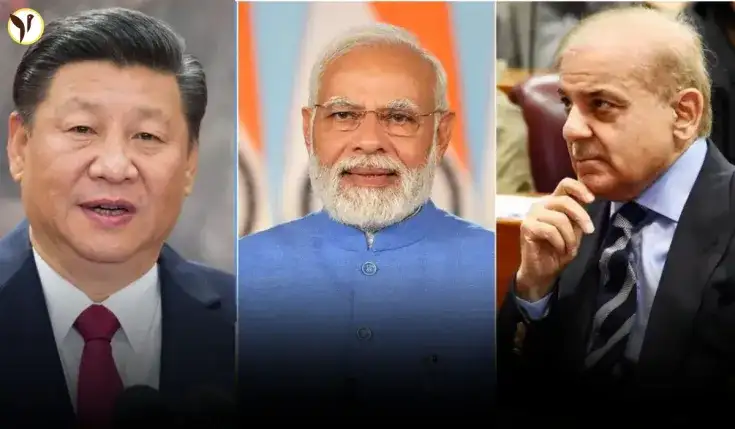China Responds to India’s Operation Sindoor, Urges Calm Between Neighbors

In a bold military maneuver, India launched Operation Sindoor, targeting nine terrorist camps believed to be operating in Pakistan and Pakistan-occupied Jammu and Kashmir (PoJK). The strikes have drawn a cautious response from China, which called for peace and dialogue between the two South Asian nations.
A Decisive Strike by India
The Indian armed forces carried out precise and coordinated attacks on camps used by terrorist groups, following intelligence inputs about potential cross-border threats. According to government sources, the operation neutralized multiple facilities linked to groups such as Jaish-e-Mohammed and Lashkar-e-Taiba.

These camps were reportedly located both within Pakistan’s Punjab region and across the Line of Control in PoJK. The Indian government has described the strikes as a preventive step taken in national interest, aimed at dismantling networks that pose a danger to regional peace.
China’s Statement: Peace Over Provocation
Reacting to the developments, the Chinese Foreign Ministry released a carefully worded statement. Speaking at a press conference in Beijing, spokesperson Lin Jian emphasized that both India and Pakistan are vital to the stability of South Asia. He urged both sides to de-escalate and resolve disputes through peaceful means.
“We hope India and Pakistan can exercise restraint, engage in dialogue, and avoid further confrontation,” Lin said.
Although China refrained from directly criticizing India’s action, its message appeared to focus on preventing any wider fallout from the military operation.
Beijing’s Diplomatic Tightrope
China finds itself in a delicate position. It has strong strategic and economic ties with Pakistan, often calling their relationship an “all-weather partnership.” At the same time, it shares a complex but crucial dynamic with India, marked by both cooperation and competition.
One of China’s major infrastructure investments, the China-Pakistan Economic Corridor (CPEC), passes through PoJK—territory that India claims as its own. Because of this, Beijing is naturally sensitive to military activity in the region.
Experts believe China’s subdued tone indicates a desire to maintain stability while avoiding alienating either country.
Dr. Anjali Menon, an international relations analyst, explained:
“China is walking a fine line. It doesn’t want tensions in an area where it has heavy investments, but it also doesn’t want to appear dismissive of India’s security concerns.”
India Asserts Its Right to Defend
India has defended its actions as both justified and necessary. Officials stressed that the operation was based on credible intelligence, and that it targeted only terror infrastructure without harming civilians.

In a statement, India’s Ministry of External Affairs reiterated the country’s commitment to peace but underscored that it will take firm steps when provoked.
The Indian government has also reached out to international partners, providing details about the operation and emphasizing its counter-terrorism focus. Several countries, including the United States and France, voiced support for India’s right to self-defense.
A spokesperson for the U.S. State Department said:
“We stand with India in its fight against terrorism. Safe havens for terrorists should not exist anywhere.”
Regional Reactions and Escalation Risks
Predictably, Pakistan condemned the strikes and accused India of unprovoked aggression. It denied the existence of any terrorist camps and called the operation a violation of its sovereignty. Islamabad has approached the United Nations and other diplomatic channels to register its protest.
The United Nations also responded, urging both countries to avoid escalation and return to the dialogue table. This aligns with the global consensus that while counter-terrorism is vital, direct conflict between two nuclear-armed neighbors must be prevented at all costs.
The broader international community appears to be taking a balanced view—recognizing India’s security concerns while encouraging diplomatic engagement.
What Operation Sindoor Signifies
This operation marks another example of India’s shift toward a proactive defense strategy. It reflects a growing doctrine that sees swift, targeted strikes as essential in deterring terrorism emanating from across the border.
At the same time, the operation has once again drawn attention to the long-standing tensions in South Asia and the fragile nature of peace between India and Pakistan.
For China, the situation presents a challenge. While it is closely allied with Pakistan, it must also consider its interests with India, particularly as both countries are key players in the global economy and multilateral platforms like BRICS and the Shanghai Cooperation Organization.
China’s message may also signal quiet pressure on Pakistan to curb terrorist activity within its borders, especially as international patience on the issue wears thin.
Looking Ahead
The future remains uncertain, but what is clear is that the region cannot afford another cycle of violence. India has sent a strong message about its willingness to act against cross-border threats, while China’s reaction underscores the importance of stability in a region marked by historic rivalries.
Whether this incident leads to renewed diplomatic engagement or further military posturing will depend on how the involved parties choose to proceed.
For now, the world watches closely as India, Pakistan, and China navigate the aftermath of Operation Sindoor—a development that could have far-reaching implications for South Asia’s security landscape.






